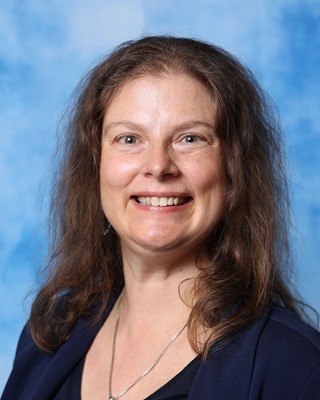Many of you know Jennifer Lynne Bird, Ph.D. as a National Board Certified Health and Wellness Coach and an English teacher here at Rosarian Academy. She received her BSEd in English Education, MEd in Education, and Ph.D. all from Miami University in Oxford, Ohio, and her health coach certification from Duke University Integrative Medicine in Durham, North Carolina. She loves teaching writing to help people heal from life’s fragile moments. That is why she has been working hard to show exactly how writing can help people heal from those fragile moments in life.
Published in November of 2022 by the Journal of Humanities in Rehabilitation, Implementing Expressive Writing in Outpatient Physical Therapy Clinics: Connecting Theoretical Foundations With Practical Strategies details exactly how she and her colleagues arrived at their conclusion.
For Dr. Bird, this was more than just research into something groundbreaking. It was personal. Hear Dr. Bird in her own words as she explains why this subject means so much to her and be sure to check out the details of her work in the above link.
I write these words nineteen years ago to the day that my mom died. In my quest to make something good happen from my family’s pain, I began a research and writing odyssey that took me out of my comfort zone as a Language Arts teacher, led to an innovative interdisciplinary collaboration, and inspired other people.
My pictures as a little girl reveal that I always held a book or a notebook. I could usually be found curled up in a chair while reading or writing stories. To this day, I find it amazing that my role as a teacher involves sharing my passions of reading and writing with students. I believe I also need to live my passions instead of only discussing them in a classroom. When my students see me read and write, they realize I do not ask them to do anything I am not willing to do myself. In my experience as a writer, I knew writing helped people heal emotionally. Writing helped save me after the death of my mom. In the middle of the night when sleep became impossible, venting my emotions in a journal contributed to my healing process. For anyone coping with grief, writing cannot take the place of a conversation with a wise counselor or hugs from supportive friends, but it does let the writer pour emotions onto the page so they stop swirling around the mind.
My mom kept notes about her health, but she didn’t share them with her doctor. Sometimes disease has no cure, so I have no way of knowing if sharing the notes would have saved or extended her life; however, I started showing up to all my medical appointments with a notebook of my symptoms and questions. Physical therapist Dr. Eric Wanner took the time to read every word of my notes. He suggested that writing might help other patients and introduced me to research professor Dr. Jayne Brahler. We combined our different areas of expertise to design a research study. We gave physical therapy patients short answer writing prompts asking them about their goals and feelings. Our research revealed that patients who wrote healed faster according to the existing objective physical therapy measures. Writing did not take the place of the exercise treatment plan, but it helped patients heal from physical pain. Research illustrating that expressive writing helped people heal both physically and emotionally already existed; nevertheless, although previous studies involved cancer patients, heart patients, and even college students fighting the common cold, none of the existing research focused on physical therapy patients. Dr. Wanner, Dr. Brahler, and I published our groundbreaking study in the Fall 2022 issue of Journal of Humanities in Rehabilitation. I make it sound easy, when in reality we spent several years discussing, writing, and revising after completing the research. During Thanksgiving week, I feel grateful for this research team who encouraged me, challenged me to write better, and never gave up on our project.
My love of learning about writing as healing led me to become both a National Board Certified Health Coach and a Stephen Minister. Both of these roles enable me to provide emotional support to people in crisis through writing, prayer, or both. Expanding my horizons also made me think differently about my teaching, as I incorporated active listening and open-ended questions into writing conferences with students. Several people at my church encouraged me to write a book about prayer. Stephen Ministers serve as caregivers and don’t preach, so I realized why people wanted to hear my prayers. They wanted to relate to the words of a young woman sharing motivation through her favorite Bible passages because I belonged to their congregation. My gift as a writer meant I articulated their thoughts and captured them in print. I called my prayer book Prayers in the Key of Narrative because I wanted to honor both my church choir and my love of narrative writing. Each of the fifty-two mini chapters (one for each week of the year) contains a prayer, Bible verse, personal narrative, and prompts for journal writing. I hope it inspires people and reminds them God loves us and listens to us no matter when and where we pray.
My divergent writing styles, from the journal writing I model in the classroom, to my research, to my prayers, make me feel I live my purpose in life. All of us experience fragile and difficult moments in life. Putting pen to paper or hands to keyboard to process our thoughts and emotions helps us worry a little bit less about life and enjoy it more.


